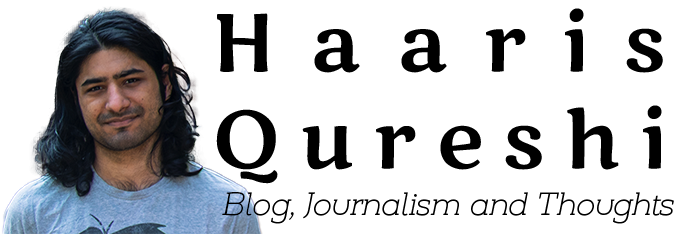‘Justice for Shireen Abu Akleh’ – Rally in protest of Palestinian journalist death, Newcastle Monument
Following the killing of American-Palestinian journalist Shireen Abu Akleh, a rally was held at Newcastle Monument on 28 May as both a protest to and a vigil for her death.
Shireen Abu Akleh was shot in the head on 11 May, with many sources claiming the bullet came from a member of the Israel Defence Forces. During her funeral on 13 May, Israeli police disrupted the procession, knocking both the coffin and its pallbearers.
In response to these events, the Newcastle branch of the Palestine Solidarity Campaign held a rally shortly after noon on Saturday at the base of Grey’s Monument.
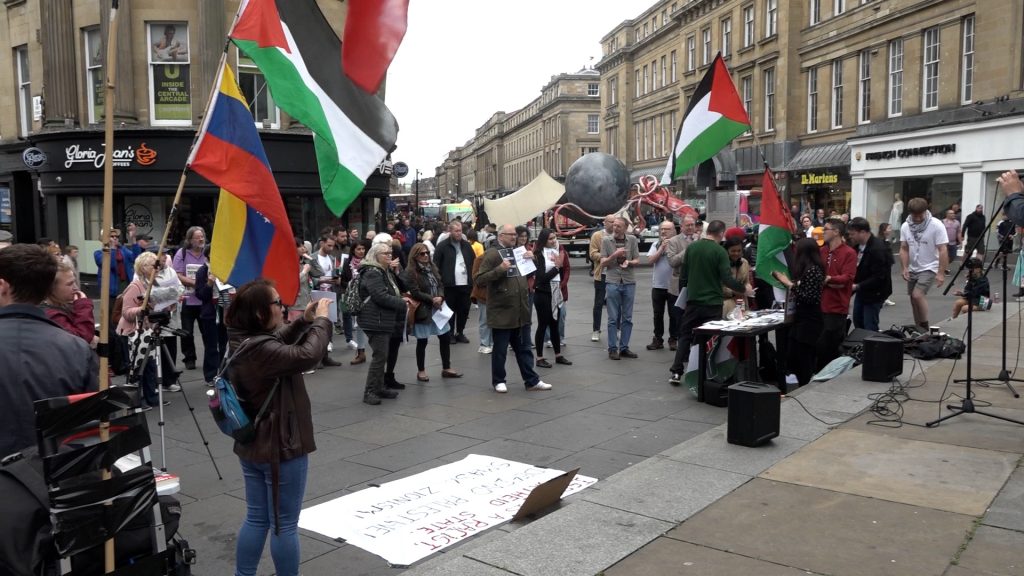
Alex Snowdon, the Chair of the Newcastle PSC, introduced the rally and explained its purpose. He then introduced David McAlister, an active campaigner in the Newcastle Stop the War Coalition. McAlister, who stated “that peace and justice in the Middle East is worthless without peace and justice for Palestine”. McAlisterwent on to explain how the fight for Palestine exists in many different justice circles, including the Black Lives Matter movement. He ended his part on the stage by performing a song based on Florence Reece’s Which Side Are You On?
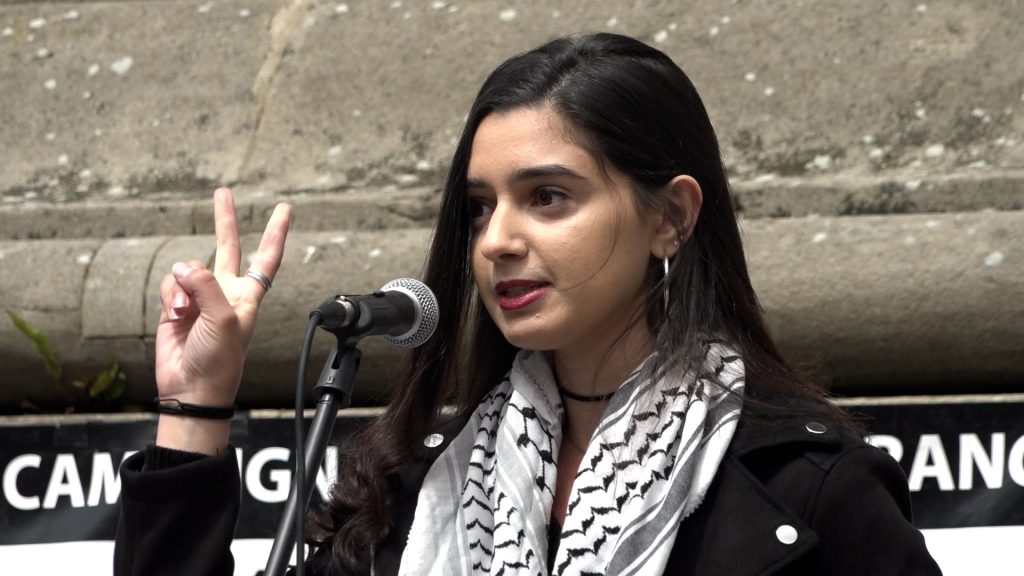
The next speaker was Eman Alasah, a PhD student at Northumbria University studying postcolonialism who was originally from Palestine. Alasah told the attendees that rather than reiterating the facts, she was going to reflect on her own personal feelings. She recounted growing up in the early 2000s listening to the news in Palestine, which included Abu Akleh’s reporting, reporting that told Palestinian stories that were otherwise being silenced. Alasah described Abu Akleh as therefore being the ‘voice as the voiceless’, before reminding everyone that now Abu Akleh has become ‘voiceless’ herself. Alasah said that the ‘condemnations and statements about the killings’ were ‘not enough’, nor were rituals or protests. She told the attendees that political action was needed. Alasah then went on to condemn the United Kingdom government in being complicit, having produced bullets used by the IDF and supporting Israel on a military, political and economical front.
David Baines, a senior lecture of journalism at Newcastle University, then took the microphone. After explaining to the attendees about the current state of the formal complaint that has been brought to the International Criminal Court in the Hague by various organisations including the International Federation of Journalists, Baines read out a statement sent to him by Rawan Kahhaz, a former student and journalist who knew Abu Akleh. Kahhaz explained that Abu Akleh was a great friend to her, and that she was still in shock over the loss. She described Abu Akleh as ‘compassionate, loving, honest and very professional.’ She goes on to say that ‘Palestinians watched her read on Al-Jazeera for twenty years, and each family now feels as if they have lost one of their own.
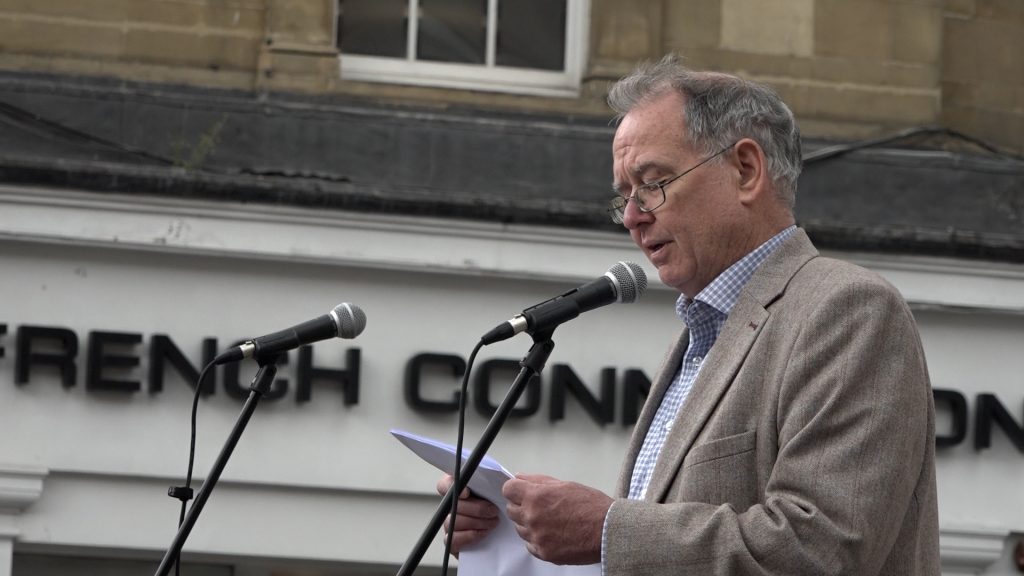
‘In Jerusalem, when Israeli soldiers attacked the mourners as they were carrying her coffin, they held her tightly to protect her from falling. And she didn’t fall. As our cause will never fall, despite all the aggression and the inhumane treatment. But in Palestine, no one is safe. Israel controls Palestinian life, and turns it into a miserable one.’
‘Israel has the power to control our life,’ Kahhaz’s statement concludes, ‘but it can’t control our souls.’
Martin Wood, a representative of the Palestine Solidarity Campaign from Darlington, spoke next on his recent trip to the West Bank, where he helped with the rebuilding of a home a family lost when it was demolished. He expressed his almost guilt at being able to visit lands that many Palestinian natives are unable to return to, before expressing the ‘fantastic sense of solidarity’ he was able to feel with the other volunteers who travelled to rebuild the home. He explained that the Israeli authorities demolished the house, they gave the family ten minutes warning, causing one of the members to lose a leg and all of them their possessions.
Palestinian refugee Hala Shoman recounted experiences of hearing Abu Akleh’s reporting and considering her a mentor to look up to for twenty years, before being hit by the headline of her death. She explained the importance of journalism to allow international oversight of events occurring in other countries. Echoing Baines’ statistic that more than 46 journalists had been ‘deliberately assassinated by Israel since 2000’, Shoman demanded this should not be allowed to continue by ‘complicit silence’.
Chandi Chopra, another one of the organisers and a representative of the Friends of Al-Aqsa, was the penultimate speaker, who spent her speech condemning bias in mainstream media. Explaining that Abu Akleh was killed whilst wearing a press ballistic vest and a helmet, however alledged that the BBC simply reported that a veteran journalist had died at age 51. Calling Abu Akleh’s death an ‘execution’, Copra also condemned the conduct of Israeli authorities during the funeral, calling it ‘another attempt of Israel to commit the most sickening war crimes and act with full impunity.’ Chopra listed accounts of other incidents of child deaths, including the 18-month-old baby who died in a house fire that Abbas, the Palestinian president, accused Israel of being responsible for. Chopra went on to describe further examples of how Israel was an apartheid state, with its restriction of movement.
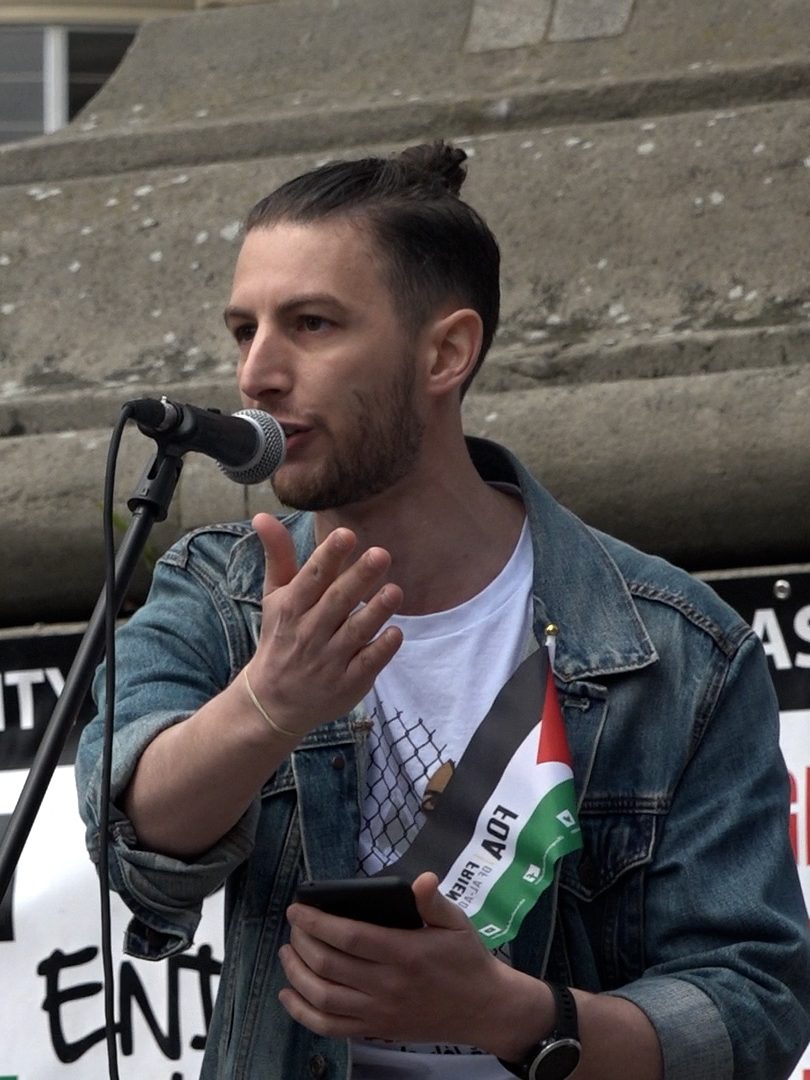
The final speaker was Jason Hussein, a British-Palestinian campaigner. Hussein started his speech by reminding everyone that the purpose of the rally was as a vigil for Abu Akleh. Describing her as a ‘bright torch that lit the plight of the Palestinians for the world to see,’ Hussein expressed his love for the show of solidarity at the rally but also his anger over the continuing ‘cycle of oppression’ and that the occupation has entered its eighth decade. Hussein directed attendees into taking action like joining local PSC groups of Friends of Al-Aqsa, and to condemn the support the British government gives the occupation through military, economic or political means.
Hussein reminded attendees of the other journalist deaths in Palestine, before recounting words his dad told him a few days ago, where he described Abu Akleh as wanting ‘to tell the stories that were never heard in the media’.
Chopra closed the event by thanking everyone for attending, and urging everyone to not see the occupation as a war or as a conflict, and to continue to speak up for Palestinian voices.
